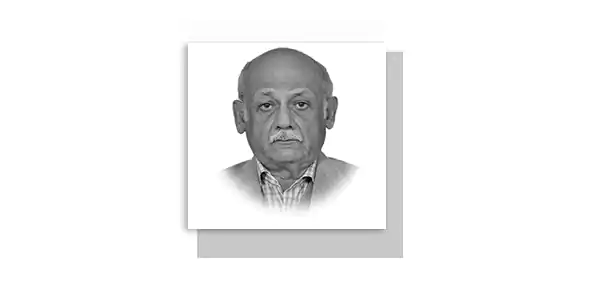POLITICAL leaders, military commanders and members of the superior judiciary have to take certain decisions in good faith for the greater good of the nation, or for the prosperity and future happiness of the people they represent. During the last 74 years of our existence our leaders have taken some momentous decisions that have impacted the lives of our people in a big way but many of these decisions can be classified as monumental blunders resulting in far reaching consequences that continue to haunt successive generations of Pakistanis to this day.
In 1954 Pakistan jumped onto the bandwagon of the USA by joining SEATO and CENTO and thus became allied with the USA and the western powers in the cold war, antagonizing the USSR and the communist block by giving America a base on Pakistani soil and permitting the flight of the U-2 aircraft for spying on Russia. India on the other hand decided to join the Non Allied Movement (NAM) led by Nehru, Tito, and Nasser. By this blunder greater space was provided to the armed forces for interfering in the governance of the country. First blunder. The constituent assembly was dissolved by the governor general Ghulam Mohammed and subsequently restored by the Sind High court in the famous Maulvi Talmiz ud din case again in the fateful year 1954. Ironically in 1955 Justice Munir head of the highest court of the land struck down the decision of the high court in a landmark controversial decision based on his famous idea called the “Law of necessity” this decision paved the way for future military dictators to impose their will on the country resulting in the rule of Ayub Khan, Yahya Khan, Zia ul Haque and Pervez Musharraf. Second Blunder. Our nascent and fragile democracy was derailed by the irrational decision to create one unit by doing away with the provinces of Pakistan. All the provinces of West Pakistan were lumped together to create the province of West Pakistan with its capital at Lahore and East Pakistan became the other unit of the federation. This resulted in anti-Punjab feelings and charges of exploitation of other provinces by the Punjabi politicians, beourocracy and the army and further alienation of East Pakistan, the first martial and the abrogation of the 1956 constitution. Third blunder.
The military regime of Ayub Khan Launched the covert operation named Operation Gibraltar in August 1965. This ill planned and poorly executed military adventure in the Indian occupied Kashmir was nothing less than a strategic blunder, a tactical mistake and a political disaster. This resulted in the 1965 war with India leading to increase in tensions and greater risk of conflict in the region. Fourth Blunder.The 1970 elections were held under a military regime and were definitely the most transparent fair and non-controversial elections in our history. In this elections the Awami league of Sheikh Mujib Ur Rehman won a land slide victory by getting 167 seats in the national assembly of 330 members. Awami league was denied the rightful mandate to form a government. and this resulted in a massive insurgency in East Pakistan with the launch of a military crackdowncalled “Operation Searchlight” the subsequent war with India and the birth of Bangla Desh. Fifth Blunder. From the shambles of the 1971 disaster emerged the rule of the elected Prime Minister Z.A. Bhutto who was then toppled by another military dictator Zia Ul Haque in 1977 with a solemn pledge to hold elections within ninety days which never happened. Zia started his oppressive rule with a massive program of Islamization of society and cruel and vindictive agenda to eliminate Bhutto from the national scene. Bhutto was finally hanged in 1979 on a trumped up charge of murder in a controversial judicial split decision of 4 to 3 that has been called Judicial murder by the world press and some leading jurists of the world. Sixth Blunder.
The military rule of General Zia played havoc with all democratic institutions of the country. In 1979 the USSR invaded Afghanistan and the military regime of Zia decided to throw their weight behind the USA in the civil war in Afghanistan hoping to gain strategic depth and the false notion of strategic assets in Afghanistan. This decision resulted in greater American aid but Pakistan was saddled with the Jihadi culture, religious extremism, sectarian conflict, Suicide bombings and the polarization of society. Seventh Blunder.
Pervez Musharraf regime had the audacity to launch another military adventure across the line of control in Kargil in the summer of 1999. This reckless and unnecessary military foray did not achieve any objectives like the earlier Operation Gibraltar. It resulted in political embarrassment on a monumental scale, extinguished the lives of hundreds of brave Pakistani boys and brought India and Pakistan to the brink of another war that could have resulted in a nuclear Armageddon ending human civilization in the subcontinent and beyond. Eighth Blunder. The happenings of 9/11changed world politics for ever. The American threat of “you are with us or against us” forced our rulers to bow down to the dictates of the USA. America wanted Mulla Omar to hand over Osama Bin Laden to them but Mulla Omar refused the American demand. America invaded Afghanistan and Pakistan helped in every way possible. After the fall of the Taliban Pakistan faced the brunt of the American war on terror losing over 75000 lives in suicide bombings and saddled with a shattered economy. Ninth Blunder.
One can only hope and pray that the present and future rulers learn from history and such irresponsible, irrational and unnecessary tragic blunders are not repeated again.
—The writer is Professor of History, based in Islamabad.
Email: [email protected]
views expressed are writer’s own.









